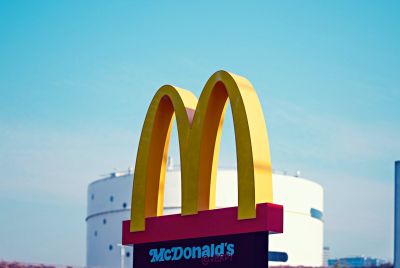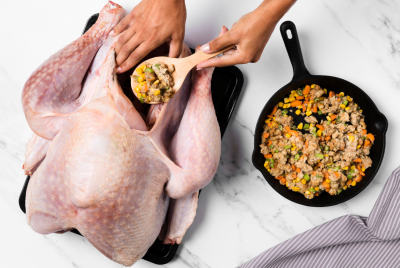Ecoroots Utilizes Mycelium to Replace Plastics for Sustainable Packaging
Many topics of discussion and research have been studied about the conventional ways of recycling plastic materials to eradicate pollution. People in different parts of the world have been taught the phrase 'reduce, reuse, recycle' in schools, workplaces, and public spaces, but, to this day, only 15% of plastic waste is recycled.
With a mission to help reduce the use of plastics and polystyrene, Lavanya Bhandari founded Ecoroots. A pioneering company dedicated to creating sustainable materials to replace traditional polystyrene, packaging, and insulation using mycelium. Their Biofoam is a biodegradable, non-toxic, and renewable alternative to traditional packaging material.

Mycelium is often referred to as the "root" of the fungus, the vegetative part of a fungus consisting of a network of fine white filaments known as hyphae. Combining fungal strains and agricultural substrates requires a rigorous process to create a strong and versatile material moldable into any shape for packaging.
The main goal of Ecoroots is repurposing waste materials and giving them a second life, and its unconventional way of recycling raises a lot of possibilities of eradicating polystyrene in the environment. "It is not your typical way of recycling, it's using materials from the earth, giving it life, repurposing and restoring it, and then releasing it back to the earth and letting nature do its thing," Lavanya says.
Lavanya's journey in building Ecoroots started in university when she studied food science, specializing in food chemistry, which got her to focus on research and development projects. After obtaining her bachelor's degree, Lavanya worked within FMCG companies in the food industry. She moved from the corporate world to a small, early-stage venture, focusing on extracting sodium alginate from brown seaweed to be used as a food ingredient. This work was related to a university R&D project she did years ago, where she won an award for most innovative product having developed a high-protein snack food, reigniting her passion for food chemistry.
One day, Lavanya encountered an article that said the industry would not be able to sustain farming practices to meet the demand for mushrooms by 2026. After reading the article, she was inspired to study the different ways in which mushrooms can be grown, and instead stumbled across the potential of mycelium (the root structure).
After extensive research and testing in her apartment, Lavanya left her corporate job and pursued her passion. She allotted all her time and effort to researching and developing mycelium materials and built the Ecoroots company from scratch. "Spending a lot of time in research and cruelty-free test runs was not easy but because of Ecoroots' vision for sustainability, we as a company will do as much as we can to produce high-quality products," she states.
Ecoroots' variety of products and services is a unique approach in the market, as it customizes each shape and size of the biofoam based on the client's needs. The lightweight and strong properties of their materials are perfect for protecting any fragile products for transportation, it also has thermal properties that can maintain the product's temperature with additional water and fire resistance.
Staying on top of research, Lavanya's goal for Ecoroots is to find new ways of creating products that cater to the needs and demands of its clients while fostering sustainable waste management. The need for agricultural substrates in growing mycelium-based materials for the biofoam enabled Ecoroots to collaborate with local farmers, promoting sustainable farming and creating a valuable resource.
"The idea is utilizing waste materials and agriculture crop residue so that we can create materials that would otherwise be disposed of, releasing carbon emissions into the world," Lavanya states. The expansion plans are in place for Ecoroots, as Lavanya has established research partners to publish patents around the Ecoroots IP.
The extensive research being conducted allows Ecoroots materials to have advanced technical properties, in comparison to traditional materials such as polystyrene and plastics. Ecoroots materials are purely organic and are made of mycelium-based materials, obtained from agricultural crop residues. This enables Ecoroots to create cultures of different strains and produce the requisite products tailored to the clients' needs.
Since the start of its operation, Ecoroots has catered its products to different industries in the market. Whilst their focus is on packaging materials for high-value fragile goods, Ecoroots is also able to explore other products that this innovative material can be used for. Some of the newest products in the pipeline are eco-friendly coffins and nursery plant pots. They are also working with exhibitions to create pieces of furniture and artistic acoustic boards.
Ecoroots celebrates being at the forefront of technology by incorporating microbiology, bioengineering, and biotechnology in creating biodegradable products. "We make a difference wherever we can for the environment, taking inspiration from mushrooms' natural circular economy – this is what Ecoroots is all about," Lavanya says.
© Copyright IBTimes 2025. All rights reserved.





















